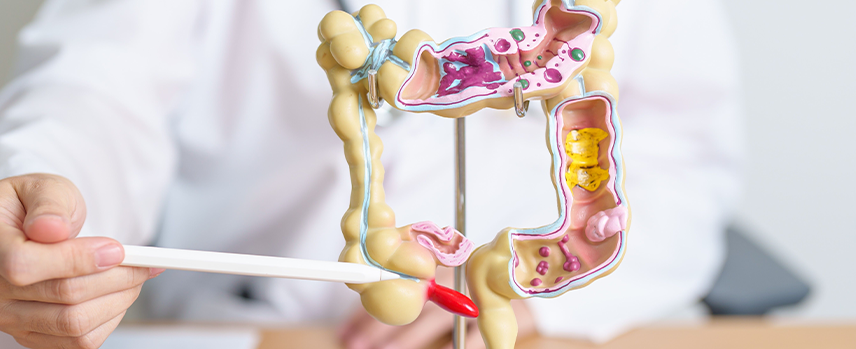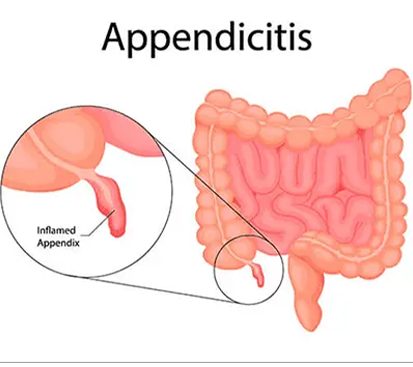
Appendicitis is a serious medical condition that occurs when the appendix, a small pouch attached to the large intestine, becomes inflamed due to a blockage. This blockage may result from hardened stool, infection, or other underlying causes, leading to swelling and severe pain. While the early symptoms may be mild, the condition can quickly worsen, making prompt diagnosis and treatment essential to prevent complications.
If left untreated, appendicitis can cause the appendix to rupture, releasing harmful bacteria into the abdomen and leading to infections like peritonitis, which can be life-threatening. Common symptoms include intense pain in the lower right abdomen, nausea, vomiting, fever, and digestive discomfort. Seeking immediate medical attention can help prevent complications and ensure timely intervention.
The standard treatment for appendicitis typically involves surgically removing the inflamed appendix, a procedure known as an appendectomy.In most cases, laparoscopic appendectomy is preferred, as it is a minimally invasive procedure that ensures a quicker recovery with minimal scarring. In cases of a ruptured appendix, additional medical care, such as antibiotics and drainage of infected fluids, may be required to prevent further complications.

Appendicitis symptoms can start as mild discomfort and quickly escalate to severe pain. Initially, a person may experience a dull ache near the belly button, which gradually shifts to the lower right abdomen. Over time, the pain becomes sharper and more intense, making movement, coughing, or even deep breathing painful. Recognizing these early warning signs can help in seeking prompt medical care before complications arise. Other symptoms such as nausea, vomiting, loss of appetite, fever, and digestive issues like constipation or diarrhea may also accompany the pain, indicating the need for immediate medical attention.
Ignoring these symptoms may lead to the rupture of the appendix, causing a life-threatening infection known as peritonitis, which can spread rapidly throughout the abdomen. This condition requires emergency surgery to prevent severe complications and organ damage. Delaying treatment can also increase the risk of abscess formation, leading to prolonged hospital stays and intensive medical care. Seeking immediate medical attention can prevent these complications and ensure effective treatment, helping patients recover quickly with minimal health risks.
Appendicitis is primarily treated with surgery, as medication alone is often not sufficient to remove the inflamed appendix. If the condition worsens, surgical removal (appendectomy) is the only effective solution to prevent rupture and infection. Depending on the severity of the condition, doctors may recommend either laparoscopic or open surgery. Laparoscopic appendectomy is a minimally invasive procedure that ensures faster recovery, minimal scarring, and reduced post-operative pain. In cases of a ruptured appendix, an open surgery may be required to clean the infection and prevent further complications. Early diagnosis and timely surgical intervention can help patients recover safely and avoid life-threatening risks.


If surgery is needed, we provide laparoscopic appendectomy, a minimally invasive procedure ensuring faster recovery, minimal scarring, and reduced post-operative pain. With expert care, patients can return to normal life within a few days. This advanced surgical technique involves small incisions, reducing the risk of complications and promoting a quicker healing process. Our specialized surgical team ensures precise and safe removal of the appendix, minimizing discomfort during recovery. Post-surgery, patients receive personalized care, including pain management and dietary guidelines, to support a smooth and speedy recovery.
Accurate diagnosis is crucial for effective appendicitis treatment. Our specialists perform a thorough medical evaluation, including a detailed review of symptoms, physical examination, and advanced imaging tests such as ultrasound or CT scan. These diagnostic methods help in determining the severity of the condition and ruling out other abdominal issues. Early and precise diagnosis allows for timely medical intervention, reducing the risk of complications like rupture or infection. Based on the findings, our experts recommend the most appropriate treatment plan, whether it be medication for mild cases or immediate surgical removal for severe appendicitis.
- Physical examination to check for pain and tenderness
- Blood tests to detect infection and inflammation
- Ultrasound or CT scan for precise appendix evaluation
- Intravenous antibiotics to manage infection before surgery
- Laparoscopic or open appendectomy for complete appendix removal

Our advanced appendicitis treatment and surgery options ensure safe and effective management of the condition. With expert surgeons and state-of-the-art facilities, we provide precise diagnosis and tailored treatment plans to suit each patient’s needs. Our minimally invasive laparoscopic appendectomy reduces recovery time, minimizes scarring, and ensures less post-operative discomfort. From initial consultation to post-surgical care, we prioritize patient safety, comfort, and a smooth recovery, helping you return to normal life as quickly as possible.